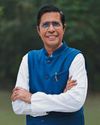
At the 28th edition of the Conference of the Parties (COP) to the United Nations Framework Convention on Climate Change (UNFCCC), held in Dubai last month, Prime Minister Narendra Modi offered to host the 33rd edition in India in 2028.
Since the first meeting of the COP, the conference has grown into one of the largest and most important intergovernmental meetings. According to the UNFCCC handbook, titled How to COP, the total number of participants at COP25 was 22,472, which included government delegates, intergovernmental organisations, non-government organisations, etc. Hosting the now-bigger COP aligns with Modi’s agenda of positioning India as the Vishwa Guru (global teacher) and driving international diplomacy with the idea of Vasudhaiva Kutumbakam (one earth, one family, one future).
In this context, the benefit suggested by the UNFCCC handbook, which calls it “an exciting way for a country to step into the global spotlight and showcase its commitment to combating climate change”, is just what India under Modi seeks. The document observes that past COP presidencies have experienced that their outreach efforts and improved communication helped the government advance its national agenda, including discussions on nationally determined contributions and national adaptation plans.
The COP is held on a rotational basis every year and it will be the turn of the Asia-Pacific region to host it in 2028. As per UN rules, India can be the host only if all countries in the region unanimously agree to its bid. It hopes to amplify its pitch with the success of the Voice of Global South Summit 2023 and the G20 summit in Delhi where, as the group president for the year 2023, it managed to whip up the New Delhi Declaration after relentlessly pushing for a consensus among reluctant nations.
Dealing with Conflicts
This story is from the January 2024 edition of Outlook Business.
Start your 7-day Magzter GOLD free trial to access thousands of curated premium stories, and 9,000+ magazines and newspapers.
Already a subscriber ? Sign In
This story is from the January 2024 edition of Outlook Business.
Start your 7-day Magzter GOLD free trial to access thousands of curated premium stories, and 9,000+ magazines and newspapers.
Already a subscriber? Sign In

From Chandni Chowk to Global Recognition
For Manish Aggarwal, director at Bikano, Bikanervala Foods, the family business was not just a responsibility but a passion he took to the global stage

Spotting AI Scams
Al has become an integral part of our lives, from customer service no insurance claims. But it is also becoming a tool for fraudsters who use it to scam individuals and corporations

Let a Hundred Flowers Bloom
On the banks of the Ganges in industrial Kanpur, a start-up has blossomed that turns waste flowers into incense

BATTERY LOW
India produces enough green energy to power many of its largest cities yet lacks the storage to use it efficiently. A nation blazing forward must leap ahead in battery technology to stay on course

We Have Everything Going for Rajasthan
Rajyavardhan Singh Rathore, Rajasthan’s industry and commerce minister, tells Pushpita Dey why the state is suited to become a hub for investments.

Dairy and Other Dilemmas
India’s refusal to open its dairy market has complicated trade negotiations for years. As global partners demand concessions, is the cost of protectionism outweighing benefits?

Riding in a Maze
As gig workers ride into an uncertain future with little more than a smartphone and a bike, the government is struggling to arrange a socialsafety net. But millions without social security is recipe for disaster

BIRLA'S BIGGEST BATTLE
As Kumar Mangalam Birla completes 30 years at the helm of the Aditya Birla Group, he has a battle to defend his businesses and conquer new ones

THE INNOVATION LEAP
India dreams of becoming a product nation. But unless the corporate sector significantly increases spending on R&D, the country will continue to lag behind global peers

EDUCATION BUDGET MUST DOUBLE EVERY 3 YEARS
Veezhinathan Kamakoti, a renowned academic and director of Indian Institute of Technology Madras, tells Deepsekhar Choudhury on what technology sovereignty means for India and how it can propel the country towards its vision of becoming a developed nation by 2047.